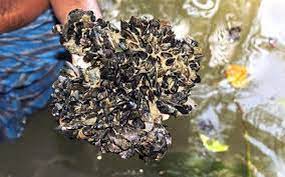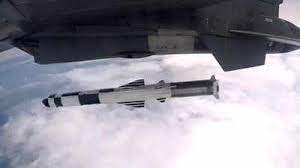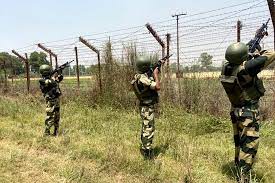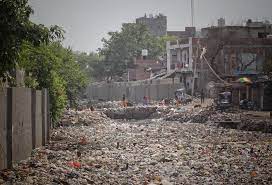Today’s Current Affairs: 31st December 2022 for UPSC IAS exams, State PSC exams, SSC CGL, State SSC, RRB, Railways, Banking Exam & IBPS, etc
Table of Contents
Report Card Of RTI Responsiveness : Satark Nagrik Sangathan

Satark Nagrik Sangathan (SNS) has released a report card of Responsiveness under RTI (Right to Information) Act 2021-22, which shows that Tamil Nadu has been the worst performing RTI responsiveness, furnishing only 14% of the information sought.
- Maharashtra was second-worst, sharing 23% of the information asked for.
- Only 10 ICs provided full information in response to the RTI applications filed as part of this assessment.
- These included Andhra Pradesh, Haryana, Jharkhand and northeastern States of Sikkim, Nagaland and Tripura.
- The SIC of Bihar, which had failed to provide any information under the RTI Act for the assessments published in 2020 and 2021, significantly improved its performance and furnished 67% of the information sought.
- A large number of ICs across the country were returning cases without passing orders.
- Uttar Pradesh and Andhra Pradesh returned around 40% of the appeals or complaints received by them.
- Of the 18 Information Commissioners the assessment found that 11 had returned appeals or complaints without passing any orders.
- Several ICs have an extremely low rate of disposal per commissioner.
- For instance, the SIC of West Bengal had an annual average disposal rate of 222 cases per commissioner – each commissioner effectively disposing of less than one case a day – even though more than 10,000 cases were pending.
- Of all the 29 ICs, only the CIC has adopted a norm regarding the number of appeals or complaints to be disposed of by each commissioner in one year.
Right to Information (RTI) Act:
- The Right to Information Act 2005 mandates timely response to citizen requests for government information.
- The basic object of the Right to Information Act is to empower the citizens, promote transparency and accountability in the working of the Government, contain corruption, and make our democracy work for the people in a real sense.
Congress Foundation Day : December 28

The Indian National Congress (INC), India’s largest opposition party, marked its 138th foundation day on December 28.
- The English bureaucrat Allan Octavian Hume or AO Hume is credited as the founder of the organisation.
- On December 28, 1885, 72 social reformers, journalists and lawyers congregated for the first session of the INC at Gokuldas Tejpal Sanskrit College, Bombay.
- At that point, the aim of this group was not to demand independence from the ongoing colonial rule but to influence the policies of the British government in favour of Indians.
- The party largely consisted of educated, upper-class people who were likely to have studied abroad.
- But with time, this grouping became more diverse, as the organisation began setting up provincial organisations.
- At its Eleventh Session in 1895, there was an increase in the number of delegates from 1,163 the previous year to 1,584.
- President Surendranath Banerjea congratulated the Congress for bringing together “the scattered element of a vast and diversified population.”
Concerns Over Invasive Mussel Species:

Fishermen of Pulicat and Ennore are raised concerns over the spread of an invasive species of mussel that is a threat to the prawns of both waterbodies.
- The marine biologists identified these species as Mytella strigata or Charru mussels which are Native to South America.
- These mussels have invaded tidal wetlands in several parts of the world, including Vembanad in Kerala.
- This is spreading due to the discharge of ballast waters from ships visiting the ports of Kattupalli.
- After Cyclone Vardah in December 2016, the mussels began to intensify and spread far north towards the Pulicat waters.
- Human interference in the wetlands, pollution and nature’s actions have triggered the rapid spread of the species.
- These mussels spread like a carpet over the river bottoms and thus preventing prawns from grazing or burying themselves in the sediment.
- Its spread is wiping out the locally prevalent yellow clams and green mussels.
Extended Range Version Of Brahmos Missile:

The Indian Air Force (IAF) successfully test-fired the extended Range Version of Brahmos missile.
- The missile achieved the desired mission objectives in the Bay of Bengal region.
- With this, IAF has achieved a significant capability boost to carry out precision strikes from SU-30MKI aircraft against land or sea targets over very long ranges.
- The capability of striking the targets located at around 350 kilometres compared to around 290 kilometres for the initial version.
- The first test of the initial version of the Brahmos Air Launched Cruise Missile was conducted in 2017.
Brahmos missiles:
- Brahmos is a joint venture between the Defence Research and Development Organisation of India and NPOM of Russia.
- It is named after the rivers Brahmaputra and Moskva.
- It is a two-stage, solid propellant engine in the first stage and a liquid ramjet in the second.
- It can be launched from land, air, and sea and multi a capability missile with pinpoint accuracy that works both day and night irrespective of the weather conditions.
- It operates on the “Fire and Forgets” principlee it does not require further guidance after launch.
- These are called “standoff range weapons”,e fired from a range far enough to allow the attacker to evade defensive counter-fire.
- Brahmos is one of the fastest cruise missiles currently operationally deployed with the speed of Mach 2.8, which is nearly 3 times more than the speed of sound.
Jan Vishwas (Amendment of Provisions) Bill, 2022:

The Union Government tabled the Jan Vishwas (Amendment of Provisions) Bill, 2022 in Parliament.
- The objective is to “decriminalize” 183 offences across 42 legislations and enhance the ease of living and doing business in India.
- Some Acts that are amended by the Bill include: the Indian Post Office Act, 1898, the Environment (Protection) Act, 1986, the Public Liability Insurance Act, 1991, and the Information Technology Act, 2000.
Highlights of the Bill:
- Under the Bill, several offences with an imprisonment term in certain Acts have been decriminalised by imposing only a monetary penalty.
- The Bill replaces this with a penalty of eight lakh rupees.
- Under the Information Technology Act, 2000, disclosing personal information in breach of a lawful contract is punishable with imprisonment of up to three years, or a fine of up to five lakh rupees, or both.
- The Bill replaces this with a penalty of up to 25 lakh rupees.
- In certain Acts, offences have been decriminalised by imposing a penalty instead of a fine.
- For instance, under the Patents Act, 1970, a person selling a falsely represented article as patented in India is subject to a fine of up to one lakh rupees.
- The Bill replaces the fine with a penalty, which may be up to ten lakh rupees. In case of a continuing claim, there shall be an additional penalty of one thousand rupees per day.
- The Bill increases the fines and penalties for various offences in the specified Acts.
- Further, these fines and penalties will be increased by 10% of the minimum amount every three years.
- As per the Bill, the central government may appoint one or more adjudicating officers for the purpose of determining penalties.
- The adjudicating officers may: (i) summon individuals for evidence, and (ii) conduct inquiries into violations of the respected Acts.
- The Bill also specifies the appellate mechanisms for any person aggrieved by the order passed by an adjudicating officer.
- For instance, in the Environment (Protection) Act, 1986, appeals may be filed with the National Green Tribunal within 60 days from the order.
Prahari App For Border Security Force (BSF):

Union Home Minister launched ‘Prahari’ app for Border Security Force (BSF) Jawans.
- BSF ‘Prahari’ app is a great example of Proactive Governance, now Jawans can get personal and service related information, housing, Ayushman-CAPF and leave related information on their mobile.
- Features of the app include:
- Grievance redressal on “Centralized Public Grievance Redress and Monitoring System” (CP-GRAMS)
information on various welfare schemes. - The app will also connect the Jawans with the portal of the Ministry of Home Affairs.
- Grievance redressal on “Centralized Public Grievance Redress and Monitoring System” (CP-GRAMS)
Border Security Force (BSF):
- It is India’s border guarding organisation on its border with Pakistan and Bangladesh.
- It is one of the seven Central Armed Police Forces (CAPF) of India, and was raised in the wake of the 1965 war on 1 December 1965.
- It comes under the Ministry of Home Affairs.
- BSF contributes its personnel every year for UN Missions.
Ukraine’s 10-point Peace Plan:

The Prime Minister of India spoke to the Ukrainian President to discuss India’s ongoing G-20 Presidency, and Ukraine’s “10-point Peace Plan”.
- In early December 2022, Ukraine urged the leaders of the Group of Seven nations to support its Global Peace Summit idea in winter that would focus on the peace plan “as a whole or some specific points in particular”.
- Ukraine first announced its peace formula at a November 2022 summit of the Group of 20 major economies.
- The plan calls for:
- Radiation and nuclear safety, focusing on restoring safety around Europe’s largest nuclear power plant, Zaporizhzhia in Ukraine, which is now-Russian occupied.
- Food security, including protecting and ensuring Ukraine’s grain exports to the world’s poorest nations.
- Energy security, with focus on price restrictions on Russian energy resources, as well as aiding Ukraine with restoring its power infrastructure, half of which has been damaged by Russian attacks.
- Release of all prisoners and deportees, including war prisoners and children deported to Russia.
- Restoring Ukraine’s territorial integrity and Russia reaffirming it according to the United Nations Charter.
- Withdrawal of Russian troops and cessation of hostilities, restoration of Ukraine’s state borders with Russia.
- Justice, including the establishment of a special tribunal to prosecute Russian war crimes.
- Protection of environment with focus on demining and restoring water treatment facilities.
- Prevention of escalation of conflict, and building security architecture in the Euro-Atlantic space, including guarantees for Ukraine.
- Confirmation of the war’s end, including a document signed by the involved parties.
Plastic Waste Management : CAG Report

As per the recent audit by CAG of MoEF&CC, it was found that the ministry has a mechanism to assess the generation of plastic waste, but none for its collection and safe disposal
Key findings of the CAG report:
- MoEF&CC has no action plan leading to ineffective implementation of Plastic Waste Management (PWM) Rules, 2016
Effective coordination between several pollution control boards (Central and State) and the ministry is lacking
Lack of uniform method of assessment of plastic waste generation within a state - The Plastic Waste Management Rules framed by MoEF&CC lack comprehensiveness to give thrust to effective implementation and monitoring
Strategy by MoEF&CC for plastic waste control:
- Strengthening of the institutional system for the collection
- Segregation and recycling of plastic waste
- Engagement with producers, importers and brand owners through Extended Producer Responsibility




